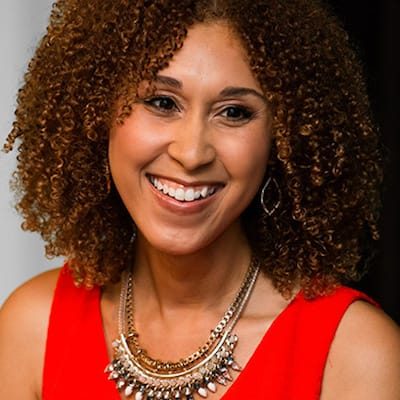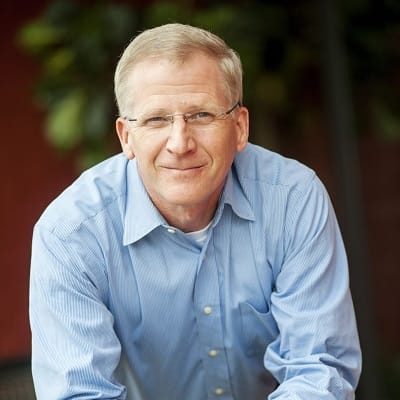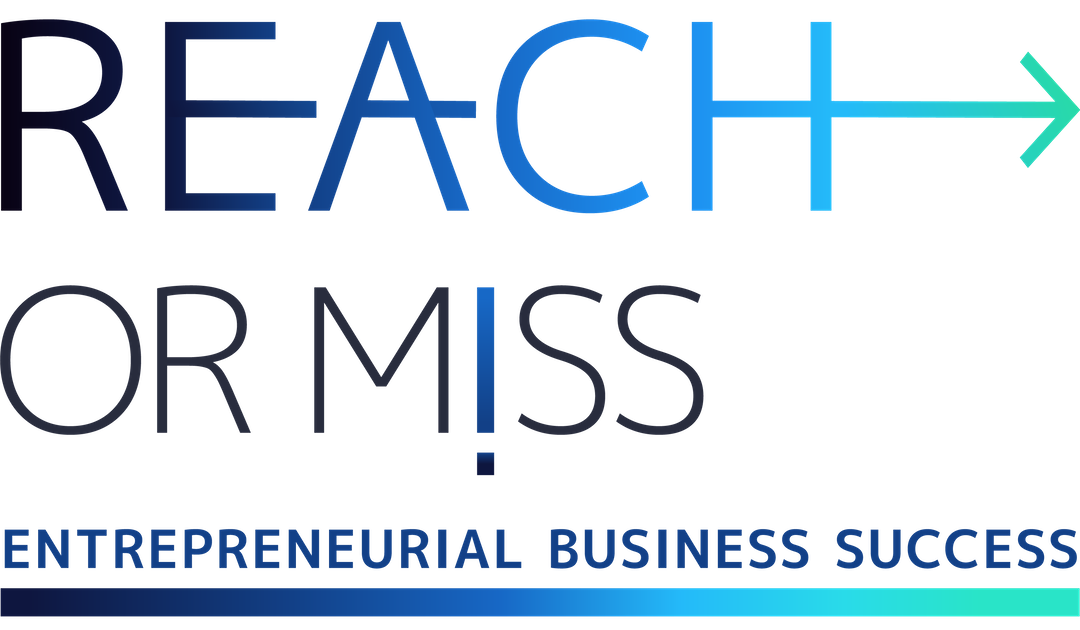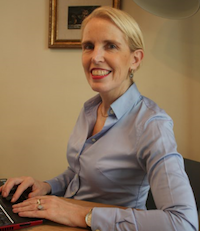Ep. 098 – REACH OR MISS – Why do entrepreneurs fail? My Conclusions after (almost) 100 podcasting episodes

REACH OR MISS Show Notes
We are about to REACH 100 episodes of the REACH OR MISS podcast.
And I can’t help but feel a bit sentimental about it.
I want to discuss why I started this podcast, and address the question: did I achieve at least some of the main objective that brought me to launch this podcast almost two years ago (March 20th 2017, to be exact).
I won’t tell the whole story now, just the main facts.
In January 2008, after 21 years of executive marketing positions in leading multinational and local brands, I founded a company aiming to help entrepreneurs and startup founders become successful by winning market category leadership using the right marketing and sales approach.
That was the basic idea.
Shortly after I left my position working with one of the leading and most successful brands in the world, I received an offer to join a new VC that would focus on supporting entrepreneurs not only with money, but also with the needed basics of marketing and sales.
The times were different back then. It was almost only technological young people who founded their own entrepreneurships, while the common perception was that they are all going to become billionaires some day soon.
Today, almost everyone becomes an entrepreneur and the around 90-95% fail to achieve the success they aimed for.
Why do so many entrepreneurs fail? There are several reasons. However, the most common reason, according to a famous research done by CB Insights, was “There was no market need” (42% of entrepreneurs that their startup fail).
And as I have written, from our experience with 120 startups and entrepreneurial businesses, we worked deeply with them about their market strategy – only 5 companies found there wasn’t a market need for their new venture. The issue is that entrepreneurs are failing to find those that would be the first to adopt their product or service and are failing to describe what this new, un-familiar product is or does.
That was one of the reasons I started this podcast almost two years ago, interviewing successful entrepreneurs and opinion leaders about what enables them to succeed and what their best advice to other entrepreneurs would be.
Today, there are tens of thousands of entrepreneurs listening to our podcast and reading our posts, and I see a lot of confusion and questions about how entrepreneurs can succeed.
We will soon launch our new online course for entrepreneurs guiding them through how to find their biggest market opportunity, and how to build their marketing and sales formation.
Today, I chose to revisit some of our successful interviewees, most of them struggled with questions like you are struggling with on their path to success. I believe it will help you to find yours.
The first advice is by Justin Hu. Justin was already successful in the space of Growth Marketing, but discovered that wasn’t where his passion was. Once he understood who his customers should be and what they needed, he built his current business.

Justin Wu
Justin is a co-founder of Blocknauts, a blockchain growth advisory and media group. Justin is a keynote speaker & advisor for over 12+ blockchain companies. Prior to founding Blocknauts, Justin has been content creator in the growth marketing space. He has collaborated with the Wall St. Journal, CES, NASA, NASDAQ, and been sponsored by Samsung, Intel, New Balance.
Most passionate about
- Today, I’m focusing on organizing educational events on Blockchain and Cryptocurrency to developers, business consultants, and other professionals that want to learn more about these fields. Our most recent, and biggest, event right now is called Blockchain Northwest. We had 800 people come to the first ever Seattle, Washington conference. We had people from Microsoft, Amazon, T-mobile, Starbucks, Bedtracks, R-chain, Storm Token, and Unicorn Gold, just to name a few; so, we had a lot of local Seattle companies come through, enterprises and enterprise decision makers, and also a lot of other companies from Canada come down, people from Oregon, LA, New York.
Justin’s best advice about approaching customers
- The best advice I have is to focus on the customer’s point of view and the value. I thought about what the problems are in the space from a consumer standpoint and what do they really want? They want high-level, advanced content, and they don’t want it too expensive because it pushes people away. You want to provide that value for the attendees.
- Think about the value for your customers first and stop thinking short term about how to monetize and squeeze every single dollar.
- There were lots of other events that were in the region that tried to copy what we did, and they tried to charge $800 a ticket; they only had barely 150 attendees! We pulled off 800 people, and we charged $150 a ticket!
Krystal Covington is a unique lady that, like many other entrepreneurs, started to build something she needed for herself.
We find this is quite common, the challenge is to take it further. Krystal found a way to do it and she shares it with you, here.

Krystal Covington
Krystal Covington is CEO & Founder of Women of Denver, a social enterprise association that helps professional women develop their business skills, build confidence, and earn their worth as business leaders. The organization launched in 2014, and has hundreds of active members.
Krystal has presented a TEDx Talk, contributes to Forbes, and has been featured in numerous media outlets, including the Denver Business Journal.
Most passionate about
- Today, I’m most passionate about the membership organization that I lead that is called Women of Denver. When I started it, I called it, for quite a while, a passion project, because I didn’t want to call it ‘work’.
- I moved to Denver, Colorado and was inspired to create a network for myself because I was lonely, I needed connections, and I wanted it to be the right kind of people. People that were passionate, career driven, open, and looking to create authentic and close relationships.
- It’s interesting because I’m shy and like to be on my own, but even people that like to be alone need connections.
- I was able to build that network pretty fast; I felt there was a need for it and it started to get bigger and bigger until I turned it into a full fledged organization with membership dues, meetings, and a mission and we have been growing since and lately, we launched our magazine…
- The future is very bright and I see so much more, like the magazine and an app that we are going to launch.
Krystal’s best advice about approaching customers
- I think the most important thing is continue to keep your customers in the loop of everything you are doing, everything that you plan, and everything you ask them.
- Test out new things and don’t be afraid to fail. I failed a few times. Your customers can tell you what they want and you should pay attention to what they say and also what they do and how they act.
- When I started, I did a prelaunch. First, I asked people, and then I told them that I created what you said you want, are you with me? And I asked them to buy a full year membership to let me know that they were with me, and they did. I had a goal to how many people I needed to sign in order to decide to open it up.
- And I keep asking before every new move or thing that I wanted to start or change, before I started to invest in that idea.
I admit that I love very much the story about Bruce Van Horn. It’s an inspiring story of someone that failed and failed big. It’s a story about the ability to pull yourself up step by step and become a bigger success than you could ever dream of.

Bruce Van Horn
Bruce Van Horn is a bestselling author, speaker, thought leader, transformational life coach, business and leadership coach, marathon runner, and cancer conqueror. Bruce hosts the “Life Is A Marathon” podcast, which has millions of listeners in over 210 countries around the world. Bruce is passionate about sharing his life experiences and respected insight to help people overcome their negative thinking and limiting beliefs, and develop a winning mindset. Bruce loves coaching people to become the fullest expression of who they were created to be. He lives in Richmond, Virginia.
Most passionate about
- I’m an executive and life coach, and a business and leadership consultant. I survived stage 4 prostate cancer, the death of my daughter, a divorce, and 2 bankruptcies. I had a bankruptcy that happened a couple of years after my daughter’s death, just before my divorce; I was in a very low point of my life and I hated everything about my life then.
- And the change actually started through the process of running a marathon that I learned so much about myself and what was holding me back in my life.
- I was in total victim mode. I had a long list of everybody and everything that was responsible for what went wrong with my life. And I wasn’t on this list. And what I’ve learned through the marathon training is that if you aren’t successful at training for your marathon, the only one to blame is you. Personal accountability and personal responsibility are the only way to run a marathon. You can’t blame someone else. And I realized the number one problem I had was a thinking problem.
- My brother, who got me into running marathons, said the hardest part of running a marathon is making the decision to do it. And he was right, but I misunderstood him. I thought it’s a decision you make once, but actually this is a decision you have to make every single day of your life; to get up, to do the things necessary to become the person that you believe that you are capable of becoming.
- And when I realized how it transforms my body, I started to apply that philosophy to every area of my life, so my finances started to turn around after my second bankruptcy, my relationships got better; I started to enjoy my life.
- People noticed I’ve changed and started to ask me about it, and I told them. And one day I got an invitation to be someone’s life coach (which I even didn’t know what it was). It worked well and I found out that was my gift; Working with people on their mindsets on their businesses and their life. That’s how I got to what I do today.
- I’ve been doing that for six years. I had to take a year off in 2014, I was diagnosed with stage 4 prostate cancer, and the treatment and surgery had a lot of complications. I had to focus on recovery and my mindset.
- When I was focusing on my mindset I realized we would always get more of what we focus on. It’s all about what you believe you are capable of. And from that place, there are no obstacles. This is what I always tell the businesses I work with: you have to forget about competition; you have to focus on creating your thing.
Bruce’s best advice about approaching the customers
- You have to put yourself in the shoes of your customers, and look at, if you were your customer, how it could benefit you. Would you buy your service or product? You should focus on your customers making their life easier or enhancing their enjoyment of life.
- Like the great Zig Ziglar always said about sales and marketing, I have a mindset about life that has radically changed my life, and I believe that others that adopt that mindset will benefit from it.
- Zig Ziglar said that if you have a product, a service, or even a message that can benefit others in their life, you have a moral obligation to tell as many people as you can about it, and then leave it up to them to decide whether or not to buy.
- People usually start a business because they have solved a problem in their own life or discovered how to solve a problem in the life of others and they want to replicate that process. What happens is the person who starts the business has all the energy and the WHY to start the business, they start with the right mindset, but then they get disturbed in the actual running of the business. So, they forget why they started the business to begin with, so coming back to the basics, loving what you do, and loving the value of what you do to other people. Stay in that mind set.
Mark Metry is a fantastically successful entrepreneur. One of the quotes I like most is his advice: “You should be very specific in what you do. You should do what you are the best in doing and really hone in with that.”
This is something I talk a lot about, not only with entrepreneurs but also with many young people that consult with me before choosing their college internship or the job they want to start with.
I believe that anyone has one or two things they are one of a kind of – in a specific period of his life.
And as entrepreneur, unless you are choosing to go for the technological innovation you established, I believe the chances you will win big is because you will focus on your best part.

Mark Metry
“Many founders should adopt Mark Metry’s ‘limits don’t exist’ mindset. It reminds me of Elon Musk.”
– Huffington Post
Mark Metry is the host of iTunes Top Charts podcast, Humans 2.0. Mark’s show features innovative and talented guests like Jay Samit, Neil Patel, and David Meltzer to educate others, change their lives, and upgrade to the Human version 2.0 that is inside each of us.
Prior to creating the Humans 2.0 Podcast, Mark was the founder and creative director of PPMC, started in 2013, the #1 Pixelmon Minecraft server in the world. As creative director, Mark grew the company’s website to over 10 million users and 10,000 registered premium members.
Mark founded and operates VU Dream (started in Dec. 2016), a growing and innovative virtual and augmented reality marketing and advertising agency based in Boston.
– Mark is Quora’s Top Writer 2018
Most passionate about
- I spend about 80% of my time running ViewDream, a growth agency for virtual and augmented reality companies around the world. The marketing world is very confusing, and with the VR industry, it’s even more confusing because the target audience is not normal people. These are people who are super interested in buying VR headsets or already have VR headsets, and we help the companies connect with their audience and really grow their businesses online.
- On the other side of that, I host a podcast called Humans 2.0, which I like to think of as a technological self development podcast where I talk with entrepreneurs, different leaders, and impactful people that do amazing things in this world. It’s all about upgrading to the next level of human experience and I learn a lot from this podcast.
- My primary focus is in the VR industry and things are picking up. The world is going towards mainstream adoption of VR. Right now, we are at the early adoption stage and my agency is growing. The plan is to continue growing with the industry, so when VR hits the mainstream, whether it will be by 2020, 2022, or 2025, my agency, as well as my podcast, will be there and will have a major part of the market.
Mark’s best advice about approaching customers
- Competition today is very difficult and I think an entrepreneur that wants to succeed should speak to the customers and potential clients with the utmost respect and apply empathy to their situation.
- You should be very specific in what you do. You should do what you are the best in doing and really hone in with that.
Dhariana Lozano left the corporate world to do what she felt is done wrong. And I’ve chosen her interview and advice because I believe that today, when Social Media is starting to change and we don’t know where its heading – it’s an opportunity for any entrepreneur that doesn’t fully use the social networks’ opportunity to connect with their potential users to do so.
It’s free and it’s a privilege in term of exposure and budget no entrepreneur should give up on.

Dhariana Lozano
Dhariana Lozano has been in the social media and digital marketing world for over 7 years. She is the co-founder of Supremacy Marketing, a boutique social media marketing firm based in New York City, who manages the social media presence of clients like Chef Jordan Andino, Flip Sigi, and more.
Her experience ranges in creating social media strategies and consulting for both B2C and B2B brands to help them stand out and break through digital walls for ongoing success. She blogs at DhariLo.com where she provides social media tips, resources, and courses. You can see her work published in Social Media Week, Social Media Today, and the AgoraPulse blog.
Most passionate about
- I’ve been in social media marketing for about 8 years now. I started off in the corporate world and I went to agencies and I felt that social media was a bit of an after thought; people would bring me in last minute into meetings. They didn’t really understand social media and what I could do. I got a little frustrated and I decided I wanted to do this on my own; work with the companies I wanted to work with and work one on one with people to help them understand social media, so that it’s not the last thing we think about, but something they think about in the beginning, when they want to create a campaign or start a business or a product the want to market.
- I started my business about 4 years ago with my partner; we help entrepreneurs, small businesses, large businesses, we help anyone who wants to be on social media.
Dhariana’s best advice about approaching customers
- I think, as an entrepreneur or small business, you have to be very clear about who you are so you can project to your potential customers or your ideal customers in the right way. I know sometimes people try to talk to everyone, but that doesn’t work, so be clear about who you are and who your customer is; it makes the process a lot easier.
- That’s not the easiest process to go through, figuring out who you want to work with or who your target customers are, but it’s worthwhile sitting down with your team, if you have one, or just by yourself, and thinking about who you are and the image you want to project; like what do you want people to see you as and what makes you stand apart from every other business.
- I live in New York City, so we have hundreds of thousands of sandwich shops, but every one is a little bit different; you need to find what differentiates you.
More resources for Entrepreneurs
- Don’t Miss – Customer Focus Strategy & Execution: Market Analysis for Fundraising
- Hayut Yogev’s Latest post: My Conclusions after (almost) 100 podcasting episodes: The 3 most important tips to help you gain ongoing growth of paying customers and business success
- Former interview: Pamela Goodwin – “My Moto is: Never Give up! And the other one is: To Always Find a Way! Those are two that I constantly live by.”


